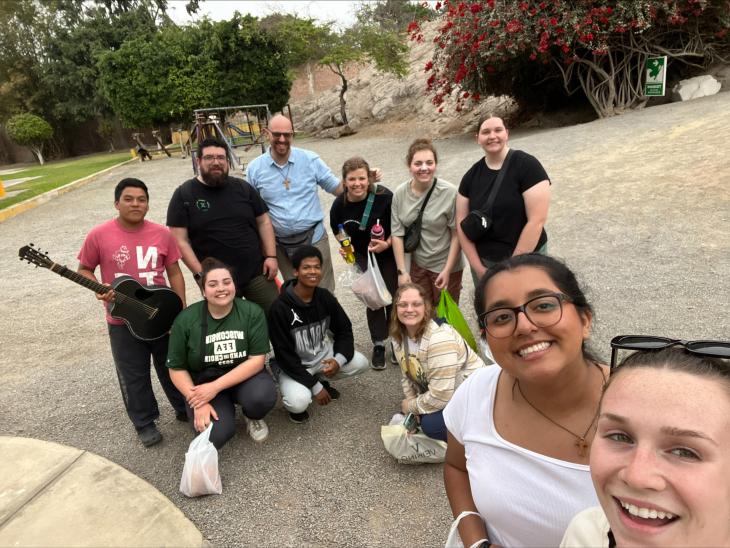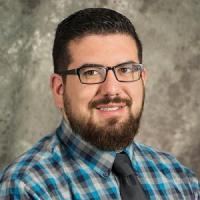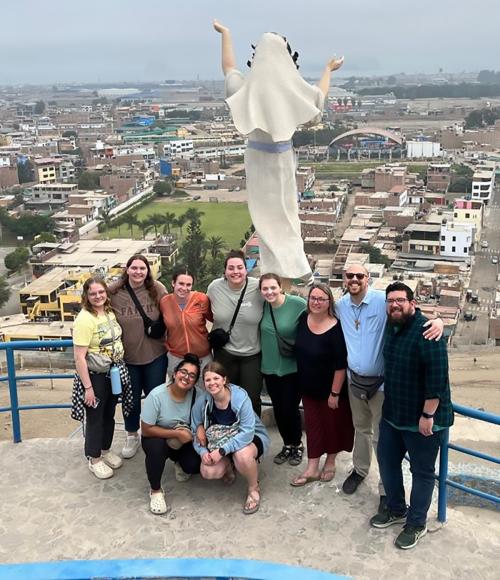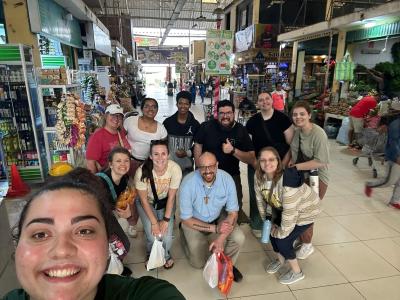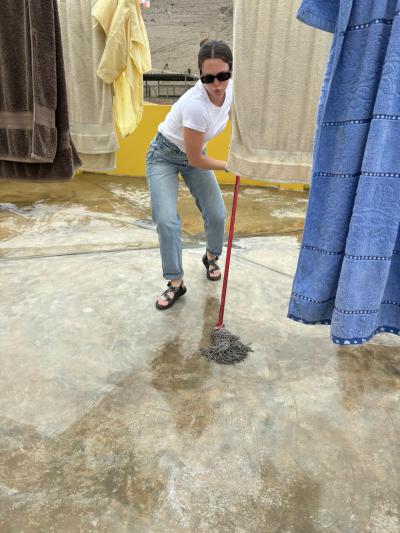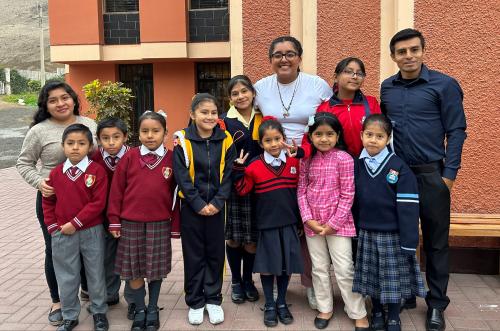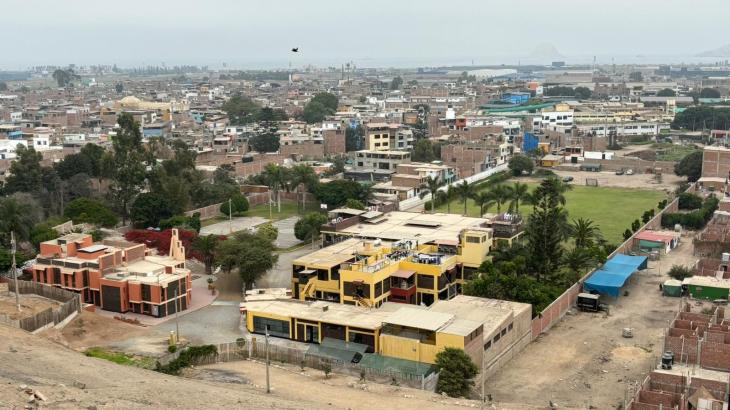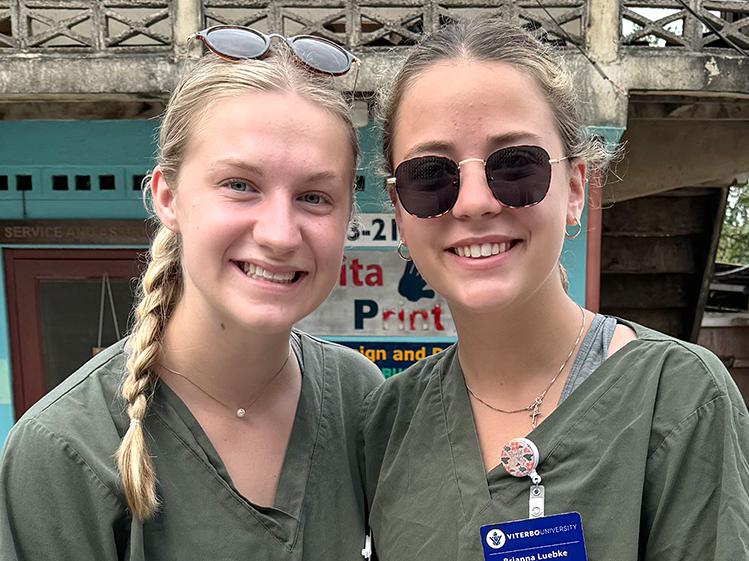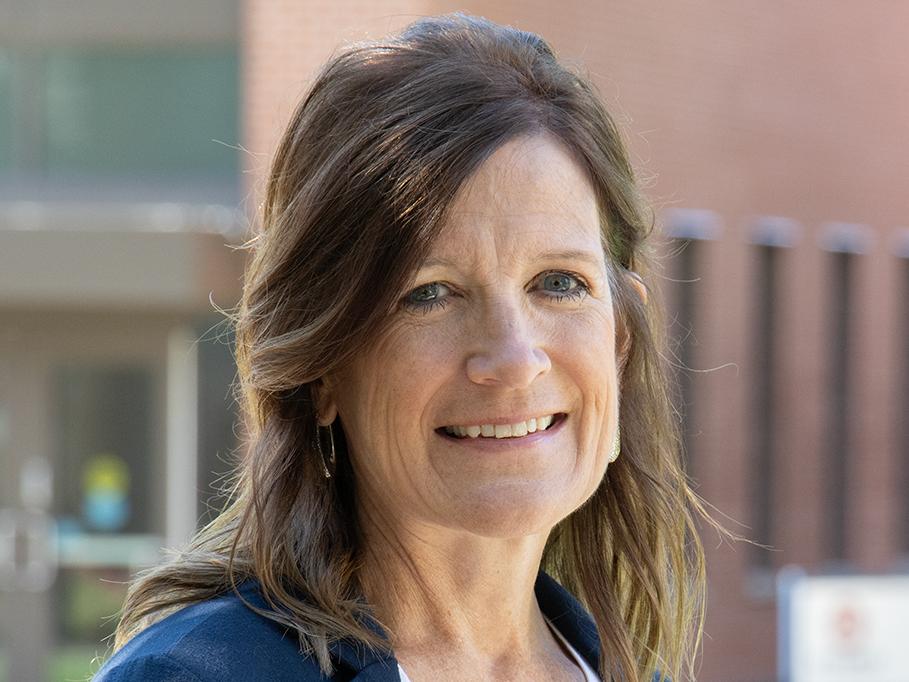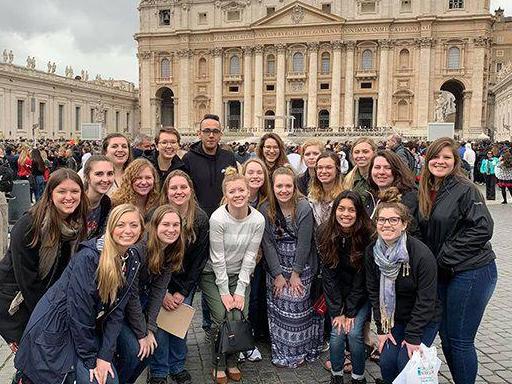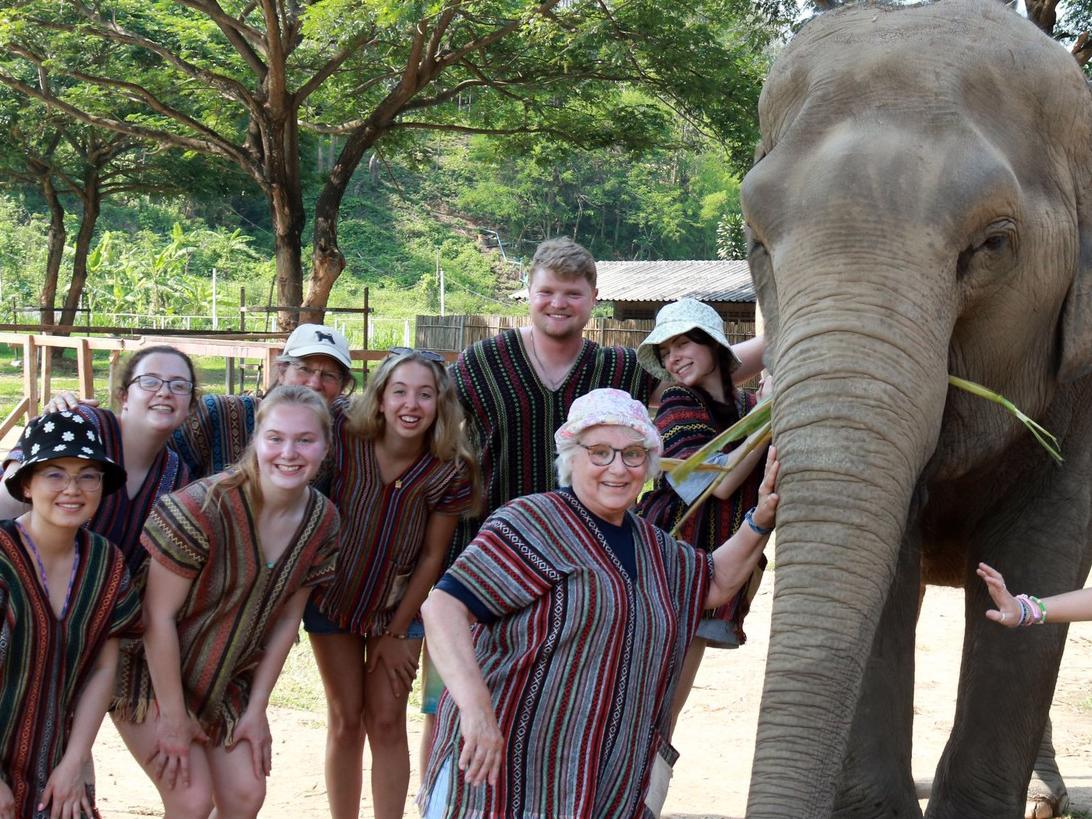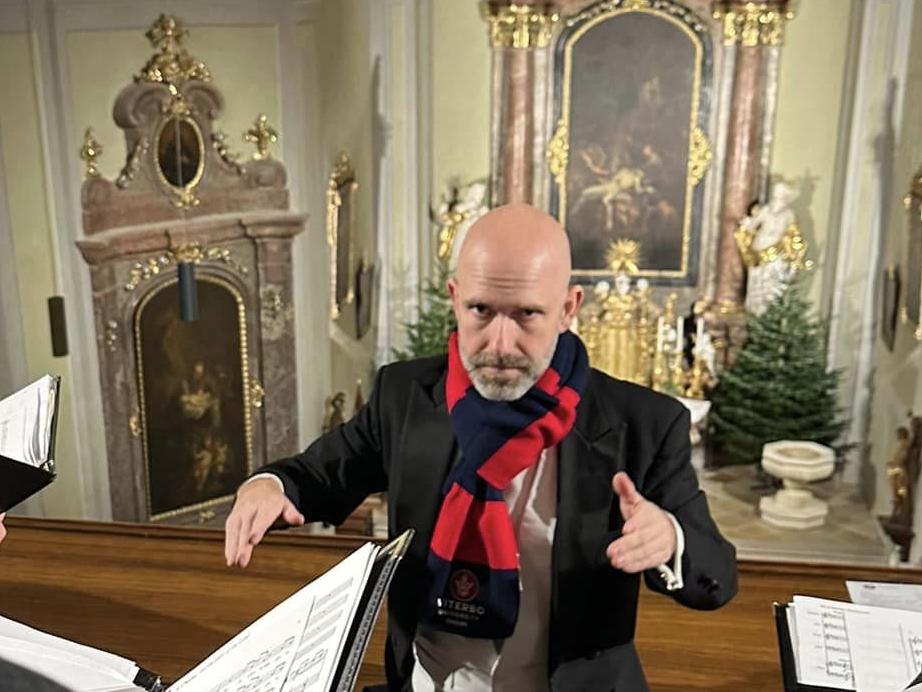As Viterbo University’s director of campus ministry, Emilio Alvarez has overseen service immersion opportunities for students in Milwaukee, Chicago, the Twin Cities, Cincinnati and, memorably, the Mexican border town of McAllen, Texas, just as the pandemic was unfolding in March 2020. The most recent service mission in Peru was much farther removed—nearly 4,000 miles—but in some ways, he said, it felt closer to home.
In May, Alvarez and Viterbo student life staff member Tammy Gilkes accompanied eight Viterbo students on a 10-day trip to Casa Hogar Juan Pablo II in Lurin, just south of Lima, Peru’s capital city. “Even though Casa Hogar is so far away, I still consider them to be close neighbors to us because they’re part of the La Crosse Diocese, in a way,” Alvarez said.
The La Crosse Diocese sponsors Casa Hogar, which was started in 1986 by the Rev. Joseph Walijewski. Known here as Father Joe and in Peru as Padre José, Walijewski did mission work in South America for 50 years before his death in 2006. He modeled Casa Hogar on Father Flanagan’s Boys Home in Nebraska, a famous orphanage popularly known as Boys Town.
The 64 youths (ages 5 to 17) who live at Casa Hogar aren’t necessarily orphans. Most have families, in fact, but grinding poverty prevented their parents from providing a home for them. The youths are divided into eight groups, four male and four female, with similarly aged kids grouped together. Each family is led by a volunteer couple, who are called “maestros” (teachers).
These volunteer couples are called teachers because they aren’t meant to take the place of parents, Gilkes explained. “The goal is to teach them to be strong individuals so they can go home and mission to their families and lift their families out of the desperate poverty they struggle with.”
People from parishes throughout the La Crosse Diocese have been supporting and visiting Casa Hogar for years, but Viterbo has only recently established a strong connection. It started with a trip to Casa Hogar in August 2022 by four high-level Viterbo officials, including Alvarez.
A plan grew out of that visit that includes annual student service trips to Casa Hogar (the one in May was the second). Viterbo’s connection also established a pipeline that, with support from the Franciscan Sisters of Perpetual Adoration, will bring “graduates” of Casa Hogar to study at Viterbo. Anybody who wants to support this effort is invited to support the Casa Hogar Scholarship Fund.
Rosa Huaman Letona, Viterbo’s first Casa Hogar graduate, completed her first year of studies in May, intending to major in nutrition and dietetics. Getting to know her helped many of the students who traveled to Casa Hogar in May feel a connection before they even got there (and while there they met Leonardo, who in August will become Viterbo’s second Casa Hogar student).
In addition, many of the Viterbo students who went to Peru attended a talk on campus last fall by Msgr. Joseph Hirsch, who now serves as Casa Hogar’s director.
Alvarez made sure to set expectations for the students before they set out. “We didn’t necessarily want to go down with the mentality of, ‘Oh, there’s something for us to fix,’” he said. “We were going to build important relationships and friendships, and we were going to receive way more from this experience than we could ever offer to them.”
That doesn’t mean Viterbo’s visitors didn’t roll up their sleeves and help out, of course. Major projects included a deep cleaning of visitor housing and laundry facilities and filling hillside irrigation containers for the plantings along the path to Walijewski’s gravesite. Gilkes made it a point to join in the daily work whenever she could, including sweeping the complex grounds and helping with the evening baking (for which she recruited other Viterbo people.
The eight Viterbo students who went to Casa Hogar in May came from a variety of majors, including marketing and business administration, education, neuroscience, nursing, religious studies and biochemistry. The common denominator was their involvement in campus ministry, though Alvarez emphasized that the experience is open to all students, even those who don’t speak Spanish.
Emma Schoen, a biochemistry major and Spanish minor who starts her junior year in the fall, saw the trip to Casa Hogar as an opportunity to speak Spanish and grow in her faith life. She came back with a new perspective on the abundance she has here and a sense of commitment to doing more for the common good. “It inspired me to think more broadly about service. Service doesn’t have to involve a big adventure,” she said. “There’s so much you can do for people with your time or your money.”
The time for reflection built into the Viterbo students’ days also had an impact on Schoen. She kept a prayer journal, often writing about how she felt God speaking to her through the kids. Because of that emphasis on contemplation, Schoen said, “I will be taking time to think about things more and being more present in the moment.”
Sophomore elementary education major Maria Ruiz Martinez also took time for contemplation and returned with a stronger sense that becoming a teacher is the path she was meant to be on. “I was inspired to go to Casa Hogar because for me the ability to impact a child's life is so fulfilling and making them feel appreciated and loved is something I want all kids to feel,” she said. “Also, a goal for me was to go on a service trip, and God put it in my path.”
Like Schoen, Martinez returned with a greater sense of stewardship, not wanting to spend money on things she doesn’t need and being more aware of consumption and waste. “I also came back with a greater strength in faith and prayer,” she said.
Hearing students talk about takeaways like that is heartening to Alvarez.
“When you run into people who just want to give of themselves like this, you know that there’s hope in the world and that good and love and peace can come from any situation in life,” Alvarez said. “I’m glad there’s a place like Casa Hogar where this is happening, but we don’t have to take a trip to Peru to be able to do this. It’s more than possible to do this in our own communities but sometimes when we get the opportunity to experience it, we realize that more can be done.”

